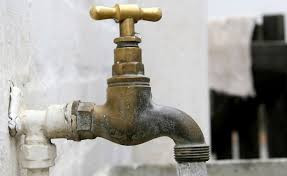
Picture this: It’s a Friday afternoon and a 10-year-old Grade Four pupil walks into a pharmacy and asks for condoms. The woman behind the counter, the age of the boy’s mother, indifferently obliges and hands the boy a pack of the contraceptive, wishing him a pleasant weekend and waving him goodbye.
NewsDay Editorial
This may sound strangely outrageous, but that is the world we are fast heading to. Our government, through the Ministry of Health and Child Care, is already working towards coming up with laws that will allow children as young as 10 years old to access contraceptives such as condoms, birth control pills, implants and injectables as a way to prevent teenage pregnancies.
A NewsDay snap survey yesterday showed that most people are not aware of such plans by government and all of those interviewed expressed shock and outrage at the proposal. This is despite the fact that there already are as many as 91 centres around the country where contraceptives are being distributed to children through the Zimbabwe National Family Planning Council.
Zimbabwean laws criminalise sexual relations involving children below the age of 16 and, although distribution of contraception and Aids prevention tools to adolescents will have implications of tacitly allowing such activity, the issue has not been brought before Parliament for debate.
There is no doubt that with the advent of the high information technology era, our children have become exposed to sexual issues and they increasingly seek to experiment.
Much as this is fact and reality, there is need to have parents being made aware of this development to enable them to cope with counselling processes.
As it is, while parents may be aware of their children’s exposure to sexual issues and the danger this poses on them, very few have been made to know that government now wants to give their children condoms and birth control pills.
- Chamisa under fire over US$120K donation
- Mavhunga puts DeMbare into Chibuku quarterfinals
- Pension funds bet on Cabora Bassa oilfields
- Councils defy govt fire tender directive
Keep Reading
The director of family health in the Ministry of Health and Child Care, Dr Bernard Madzima, reportedly said government took the decision to dispense contraceptives to children as a way to curb teenage pregnancies and pregnancy-related deaths among young girls.
He said the children were counselled first before they were given the contraceptives.
The programme to give out contraceptives to adolescents is called the National Adolescence Sexual and Reproductive Health Strategy and, according to Madzima, government is working at strengthening the programme by dealing with the legal issues that criminalise sexual activities with minors — a suggestion that moves could soon be underway to make sex with or among minors legal.
Even organisations that deal with the prevention of HIV and Aids seem to be amenable to the idea of dishing out contraceptives to children on the grounds that, much as abstinence would be the best option, the fact remained that children are fast getting sexually active at tender ages.
Our point is that parents still have a role to play in their children’s moral issues. Giving youngsters pills and condoms may be a way to prevent pregnancies, but its impact on the moral fabric of society must be considered carefully.
Has enough education been done to prepare parents to cope with this development? Not much, from our perspective.











